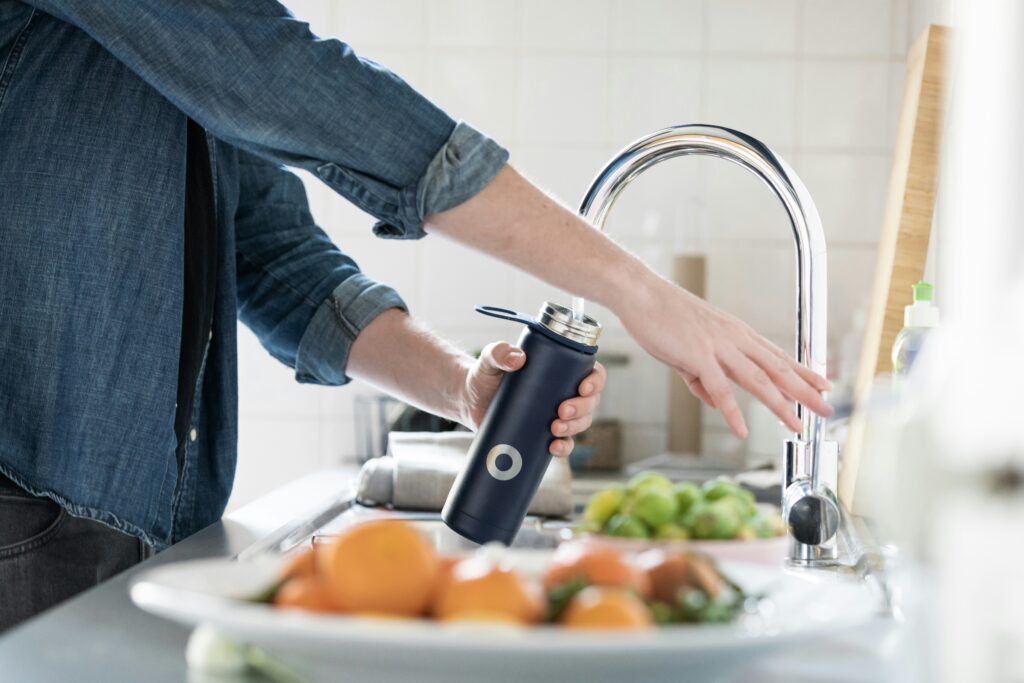
Students for Life Action (SFLAction) makes headlines once again as a water-testing bill, SB 1976, we’ve supported and inspired has been introduced in the Texas Senate by Senator Bryan Hughes (R). If signed into law, the bill would require the state to test for harmful substances including mifepristone, the first half of the deadly duo of Chemical Abortion Pills. Currently, the bill sits in the Senate Committee on Water, Agriculture, and Rural Affairs.
The Dallas Morning News picked up the story, stating, “The legislation is part of a broader push spearheaded by anti-abortion advocates, including Students for Life of America, to classify mifepristone as an environmental pollutant.” SFLAction isn’t going to apologize for leading the efforts to ensure safe water and the health of women—efforts that have included extensive legislative work, as outlined in the Dallas Morning News’s coverage. Given that mifepristone is a progesterone-blocker and progesterone is an essential hormone for the health of men, women, and children, classifying it as a pollutant and monitoring its presence in the water supply is just plain common sense. One doesn’t even have to be pro-life to recognize that. As Sen. Hughes himself said, “It’s hard to be against gathering information and finding out what chemicals are in the water.”
Yet—perhaps unsurprisingly—pro-abortion activists such as Tamara Stein of the aptly-named Mayday Health (watch out women and children!) find a way to do just that, ignoring the dangers of these pills and getting worked up over abortion “access.” “I think all of these are intimidation factors to paint abortion pills as dangerous, to make it so people feel like they can’t get these medications,” she told the Dallas Morning News. Well, she got one thing right: Sen. Hugh’s and SFLAction’s efforts do paint the abortion pills as dangerous—because they are.

Just look at the results of a recent study conducted by the Ethics and Public Policy Center (EPPC) that found “10.93 percent of women [taking the pills] experience sepsis, infection, hemorrhaging, or another serious or life-threatening adverse event within 45 days following a mifepristone abortion, far greater than the summary figure of ‘less than 0.5 percent’ in clinical trials reported on the drug label.”
Significant numbers of women are ordering these dangerous pills online with little-to-no regulation and bleeding out in agonizing pain in their homes during DIY abortions. The results of these at-home abortions—placenta and human remains laced with progesterone-blocking drugs—are flushed down the toilet and into our waterways, where they become a problem for all of us by damaging the environment and human health.
It’s gratifying to see the unwearied efforts of SFLAction on this issue making waves. Americans deserve to know the risks Chemical Abortion Pills present to women, the environment, and, of course, preborn children. Since the Biden Administration implemented Online, No Test Chemical Abortion Pill policies, the use of mifepristone and misoprostol has proliferated, now accounting for 63% of abortions, according to the pro-abortion Guttmacher Institute—although the lack of a National Abortion Reporting Law makes these figures hard to confirm.
The full scale of the danger of Chemical Abortion Pills in our water remains unclear—it’s simply been ignored until now. Which is why SFLAction has spearheaded the effort to investigate these hazards and has strongly supported legislation such as SB 1976 in Texas, which will at least begin to gather actionable data on the size of the problem.

At the very least, we should be testing the water to keep apprised of this hazard, as Sen. Hughes and others in Texas and beyond are recognizing.
SFLAction has appealed to the Trump Administration to evaluate abortion water pollution, now flushed by the tons into America’s drinking water. The appeals are going to Health and Human Services (HHS), Food and Drug Administration (FDA), and the Environmental Protection Agency (EPA). You can learn more about our federal efforts in some articles posted below, but the bottom line is this: Even if you support abortion, that’s not an argument in favor of drinking other people’s abortions.
